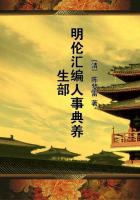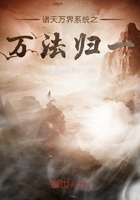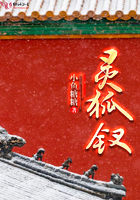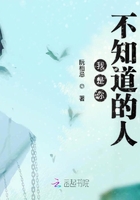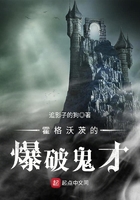That theory takes varying shapes. In the philosophy of Mr. Herbert Spencer we find a pure Euhemerism. Gods are but ghosts of dead men, raised to a higher and finally to the highest power. In the somewhat analogous but not identical system of Mr. Tylor, man first attains to the idea of spirit by reflection on various physical, psychological and psychical experiences, such as sleep, dreams, trances, shadows, hallucinations, breath and death, and he gradually extends the conception of soul or ghost till all nature is peopled with spirits. Of these spirits one is finally promoted to supremacy, where the conception of a supreme being occurs. In the lowest faiths there is said, on this theory, to be no connection, or very little connection, between religion and morality. To supply a religious sanction of morals is the work of advancing thought.
This current hypothesis is, confessedly, "animistic," in Mr.
Tylor's phrase, or, in Mr. Spencer's terminology, it is "the ghost theory". The human soul, says Mr. Tylor, has been the model on which all man's ideas of spiritual beings, from "the tiniest elf"to "the heavenly Creator and ruler of the world, the Great Spirit,"have been framed. Thus it has been necessary for Mr. Tylor and for Mr. Spencer to discover first an origin of man's idea of his own soul, and that supposed origin in psychological, physical and psychical experiences is no doubt adequate. By reflection on these facts, probably, the idea of spirit was reached, though the psychical experiences enumerated by Mr. Tylor may contain points as yet unexplained by Materialism. From these sources are derived all really "animistic" gods, all that from the first partake of the nature of hungry ghosts, placated by sacrifices of food, though in certain cases that hunger may have been transferred, we surmise, by worshippers to gods not ORIGINALLY animistic.
In answer to this theory of an animistic or ghostly origin of all gods, it must first be observed that all gods are not necessarily, it would seem, of animistic origin. Among certain of the lowest savages, although they believe in ghosts, the animistic conception, the spiritual idea, is not attached to the relatively supreme being of their faith. He is merely a powerful BEING, unborn, and not subject to death. The purely metaphysical question "was he a ghost?" does not seem always to have been asked. Consequently there is no logical reason why man's idea of a Maker should not be prior to man's idea that there are such things as souls, ghosts and spirits. Therefore the animistic theory is not necessary as material for the "god-idea". We cannot, of course, prove that the "god-idea" was historically prior to the "ghost-idea," for we know no savages who have a god and yet are ignorant of ghosts. But we can show that the idea of God may exist, in germ, without explicitly involving the idea of spirit. Thus gods MAY be prior in evolution to ghosts, and therefore the animistic theory of the origin of gods in ghosts need not necessarily be accepted.
In the first place, the original evolution of a god out of a ghost need not be conceded, because in perhaps all known savage theological philosophy the God, the Maker and Master, is regarded as a being who existed before death entered the world. Everywhere, practically speaking, death is looked on as a comparatively late intruder. He came not only after God was active, but after men and beasts had populated the world. Scores of myths accounting for this invasion of death have been collected all over the world.
Thus the relatively supreme being, or beings, of religion are looked on as prior to Death, therefore, not as ghosts. They are sometimes expressly distinguished as "original gods" from other gods who are secondary, being souls of chiefs. Thus all Tongan gods are Atua, but all Atua are not "original gods". The word Atua, according to Mr. White, is "A-tu-a". "A" was the name given to the author of the universe, and signifies: "Am the unlimited in power," "The Conception," "the Leader," "the Beyond All". "Tua"means "Beyond that which is most distant," "Behind all matter," and "Behind every action". Clearly these conceptions are not more mythical (indeed A does not seem to occur in the myths), nor are they more involved in ghosts, than the unknown absolute of Mr.
Herbert Spencer. Yet the word Atua denotes gods who are recognised as ghosts of chiefs, no less than it denotes the supreme existence. These ideas are the metaphysical theology of a race considerably above the lowest level. They lend no assistance to a theory that A was, or was evolved out of, a human ghost, and he is not found in Maori MYTHOLOGY as far as our knowledge goes. But, among the lowest known savages, the Australians, we read that "the Creator was a gigantic black, once on earth, now among the stars".
This is in Gippsland; the deities of the Fuegians and the Blackfoot Indians are also Beings, anthropomorphic, unborn and undying, like Mangarrah, the creative being of the Larrakeah tribe in Australia.
"A very good man called Mangarrah lives in the sky. . . . He made everything" (blacks excepted). He never dies. The Melanesian Vui "never were men," were "something different," and "were NOTghosts". It is as a Being, not as a Spirit, that the Kurnai deity Munganngaur (Our Father) is described. In short, though Europeans often speak of these divine beings of low savages as "spirits," it does not appear that the natives themselves advance here the metaphysical idea of spirit. These gods are just BEINGS, anthropomorphic, or (in myth and fable), very often bestial, "theriomorphic". It is manifest that a divine being envisaged thus need not have been evolved out of the theory of spirits or ghosts, and may even have been prior to the rise of the belief in ghosts.

